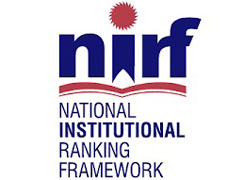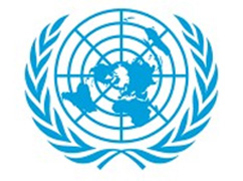
The Department of Languages has been in existence since the inception of the erstwhile Christ College in 1969. Kannada, Hindi, Malayalam, Sanskrit, Tamil, Telugu, Urdu and French besides Additional English were offered as second language in the UG Programmes. Over the years, with superannuation of the faculty and decreasing numbers, some of the languages were dropped. The Department presently offers Kannada, Hindi, Sanskrit, Tamil and French.


In order to redefine the role of second language in the curriculum of HE, the Department of Languages has moved from just the study of ‘second language’ to the study of language, literature and culture.
India is rich with different cultures, literatures and linguistic expressions and this diversity is the most unique feature of our great nation. It is through the development of strong sense and knowledge of their own cultural history, arts, languages, and traditions that students can build a positive cultural identity and self- esteem. Unfortunately Indian languages have not received their due attention and care with the country losing over 220 languages in the past 50 years. The NEP 2020 recommends for the need of more higher education institutions that offer programmes using mother tongues as medium of instruction in order to is promote the strength, usage, and vibrancy of all Indian languages. Strengthening the departments and programmes in Indian languages, comparative literature and creative writing is the need of the hour.
India is rich with different cultures, literatures and linguistic expressions and this diversity is the most unique feature of our great nation. It is through the development of strong sense and knowledge of their own cultural history, arts, languages, and traditions that students can build a positive cultural identity and self- esteem. Unfortunately Indian languages have not received their due attention and care with the country losing over 220 languages in the past 50 years. The NEP 2020 recommends for the need of more higher education institutions that offer programmes using mother tongues as medium of instruction in order to is promote the strength, usage, and vibrancy of all Indian languages. Strengthening the departments and programmes in Indian languages, comparative literature and creative writing is the need of the hour.
All the languages have their own beauty and vibrancy. While the Indian languages are presented in their historical and cultural form, the foreign languages provide all the cross cultural nuances to students on the threshold of geographical and professional mobility. In order to redefine the role of second language in the curriculum of HE, the Department of Languages has moved from just the study of ‘second language’ to the study of language, literature and culture. The curriculum includes art forms like music, theatre, painting, sculpture and films to introduce the students to the five decade old Indian civilization and culture and to offer them an aesthetic experience.
Students are encouraged to share their cultural knowledge imbibed from their family through Bhasha Parishat or Centre for Culture to see the glorious tradition of Indian heterogeneous culture with a diachronic and synchronic approach. The Wikipedia project undertaken by the Indian language students in association with the Centre for Internet and Society for the digitalization of literary texts is the largest platform in Asia. Bhasha Utsav and Ethnic Day, the major festival of the department brings the entire University together as one family. The Kannada Sangha, Publication wing of the Department of Kannada, renowned all over the country, has to date 253 publications to its credit.
From a department, complacent in offering second languages, the department has come a long way. With the flexibility afforded by the autonomy status to the institution in 2005, the department resorted to a revamping of the syllabus with an annual review of the same and a complete change over, once in three years. The shift to language, literature and culture has brought the desired impact, creating an awareness through talks and panel discussions. While Yakshagana and Bhasha Utsav & Ethnic Day, introduced since 2006 have been ideal platforms to showcase the folk arts and connect the youth to their roots, culture and tradition; the language competitions have offered the perfect space to encourage literary and artistic skills.
In response to the demands of a University to create and disseminate knowledge, the faculty have made significant contributions in peer reviewed journals, including a major research project and three monographs. It has also initiated collaborative and interdisciplinary projects, quality publications, consultation services and international collaborations.
Browse the graduate and undergraduate degrees and majors offered by CHRIST’s 9 Schools and learn more about admissions requirements, scholarships, and financial aid opportunities.
Explore a myriad of engaging activities, enriching student life and fostering holistic development.
International Conference on Psychology Learning and Teaching (PLAT-2024) on 1-3 August 2024 at CHRIST University, Bengaluru, India The conference is...
AsiaPLAT Conference 2024 organised by Department of Psychology
...2024 CU-CKS International Conference organized by Centre for Korean Studies,in collaboration with Liberal Arts, Dept of International Relations, Political Science...
MSc Social Anthropology (2014-2015), University of Oxford BA PSEnglish (2011-2014), Christ University One of my favourite memories at Christ was when the English Department got our class to put up a production of ‘A Streetcar Named Desire’. Not only was it extremely fun to play Blanche DuBois, but it was also illuminating to find new […]
MSc Social Anthropology (2014-2015), University of Oxford BA PSEnglish (2011-2014), Christ University
One of my favourite memories at Christ was when the English Department got our class to put up a production of ‘A Streetcar Named Desire’. Not only was it extremely fun to play Blanche DuBois, but it was also illuminating to find new kinds of writing in what I think is one of the most diverse curricula in my college experience.
My time at Christ studying English instilled in me a deep knowledge and love of a wide range of literatures, and a flair for theatre (and theatrics) that has followed me since.

I was committed to Jabberwocky-the annual Literary carnival, hosted by the English Department as part of my Bachelors program between 2011 – 2014. The facilitators always helped us to find the questions within our personal spaces, and expand them to the Universe out there. I was so inspired after reading ‘Leaves of Grass’ by Walt […]
I was committed to Jabberwocky-the annual Literary carnival, hosted by the English Department as part of my Bachelors program between 2011 – 2014. The facilitators always helped us to find the questions within our personal spaces, and expand them to the Universe out there. I was so inspired after reading ‘Leaves of Grass’ by Walt Whitman, that I decided to take my bicycle on a solo trip from Bangalore to Jaipur, and then Jaipur to Vietnam. I cycled through 7 countries in a span of 8 months, and relived all that I had learned in my classes on this journey. Studying English Literature at Christ University helped me to get in touch with my own voice, and be able to express it to the world.
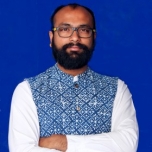
The teachers inducted us into the arcane world of English literature in unique ways. The teachers also had a unique way of reeling in the motley crew of seemingly recalcitrant high school graduates disguised as freshmen. Needless to say, it worked. To be honest I had no great expectations of literature altering my life in […]
The teachers inducted us into the arcane world of English literature in unique ways. The teachers also had a unique way of reeling in the motley crew of seemingly recalcitrant high school graduates disguised as freshmen. Needless to say, it worked. To be honest I had no great expectations of literature altering my life in any significant way. I knew I liked the written word, but I hadn’t experienced its’ full impact until I was taught how to navigate my way to the right ones. That’s where the English Department came in. To teach me, through an understanding of rhyme scheme, that there was a science behind creating and understanding prose. An understanding I try and utilise in my professional life till day. I was also taught that the right text needed the right tools, like literary theory, for dissection etc. To quote Anias Nin, “we write so we can taste life twice”. And as a corollary, I’d say we read so we can lead many lives.
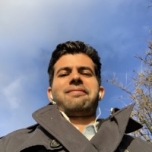
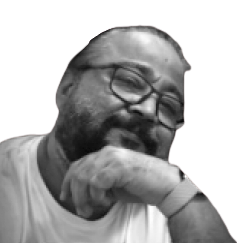
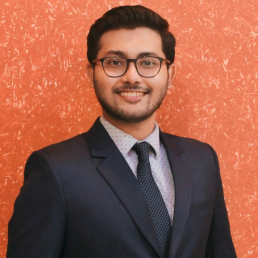
Address
Bangalore Yeshwanthpur Campus
Nagasandra, Near Tumkur Road, Bangalore,
Karnataka-560073
Telephone
Mail Us At


